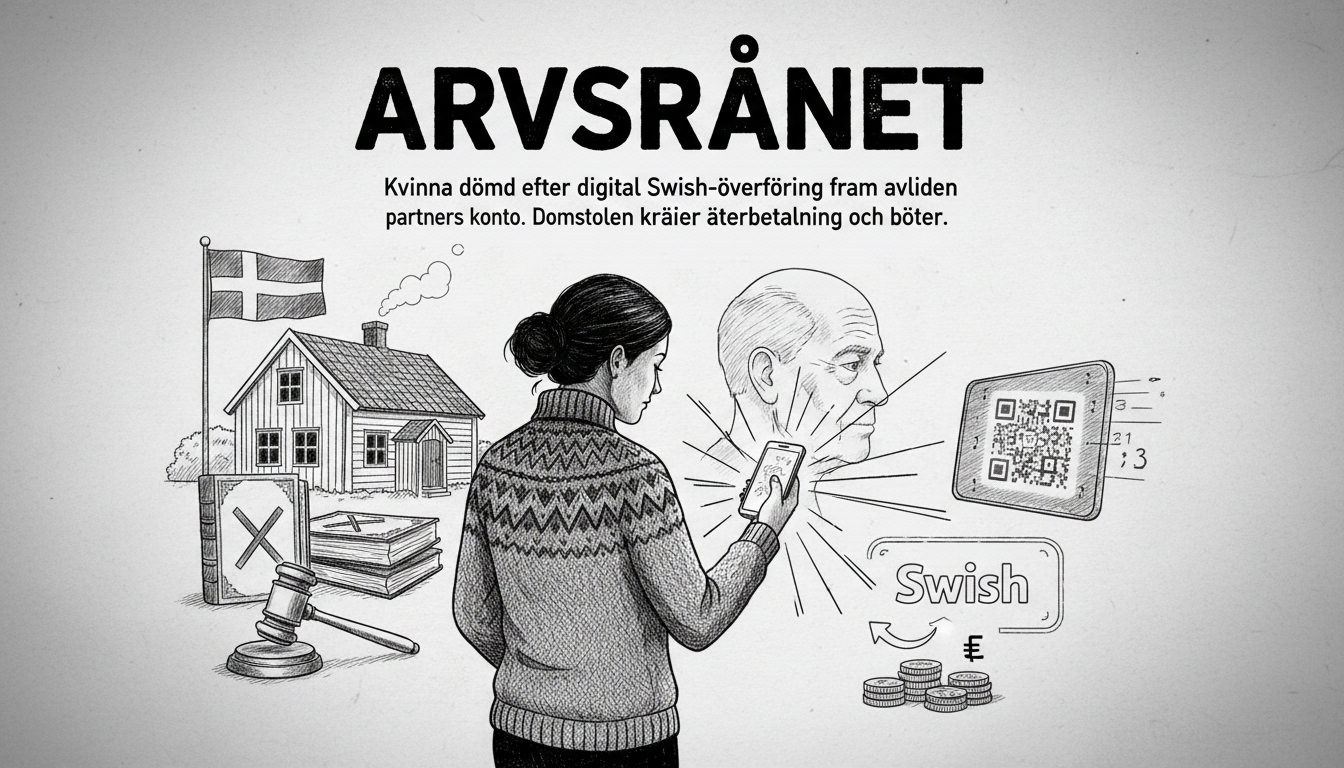A Swedish court has convicted a woman for transferring money from her deceased partner's account to her own. The incident occurred in Västerbotten county in northern Sweden. She used the Swish mobile payment system to move 23,000 kronor to herself after her partner's death.
The case came to light when the deceased man's son discovered his father's bank account contained only 172 kronor. Swedish authorities investigated the unusual transactions and brought fraud charges against the woman.
Sweden's legal system handled this as a financial crime case. The court ordered the woman to pay a 2,500 kronor fine. She must also return the full amount she transferred from her deceased partner's account.
This case highlights Sweden's advanced digital payment infrastructure. Swish has become the dominant payment method throughout the country. Nearly all Swedish adults use the mobile payment system regularly. The convenience of instant bank transfers creates new challenges for financial oversight.
Swedish inheritance laws provide clear guidelines for handling deceased individuals' assets. Family members typically manage estate matters through formal legal processes. The court's decision reinforces that unauthorized access to deceased persons' accounts constitutes fraud.
Legal experts note this case demonstrates how digital payment systems require updated legal frameworks. Traditional banking safeguards sometimes struggle to keep pace with instant payment technologies. Sweden's experience offers lessons for other countries adopting similar digital payment systems.
The conviction shows Swedish courts take financial crimes seriously regardless of the amount involved. The relatively small fine reflects Sweden's proportional sentencing approach. The requirement to repay the full amount ensures the victim's estate recovers the lost funds.
This incident raises questions about digital asset management after death. Many Swedes now hold most of their money in digital form. Families should establish clear procedures for accessing digital accounts during emergencies. Financial institutions continue developing protocols for handling accounts after customers pass away.
The case serves as a cautionary tale about proper financial conduct during difficult personal circumstances. Grieving family members should follow legal procedures rather than taking independent financial actions. Sweden's transparent legal system provides clear channels for handling estate matters properly.

